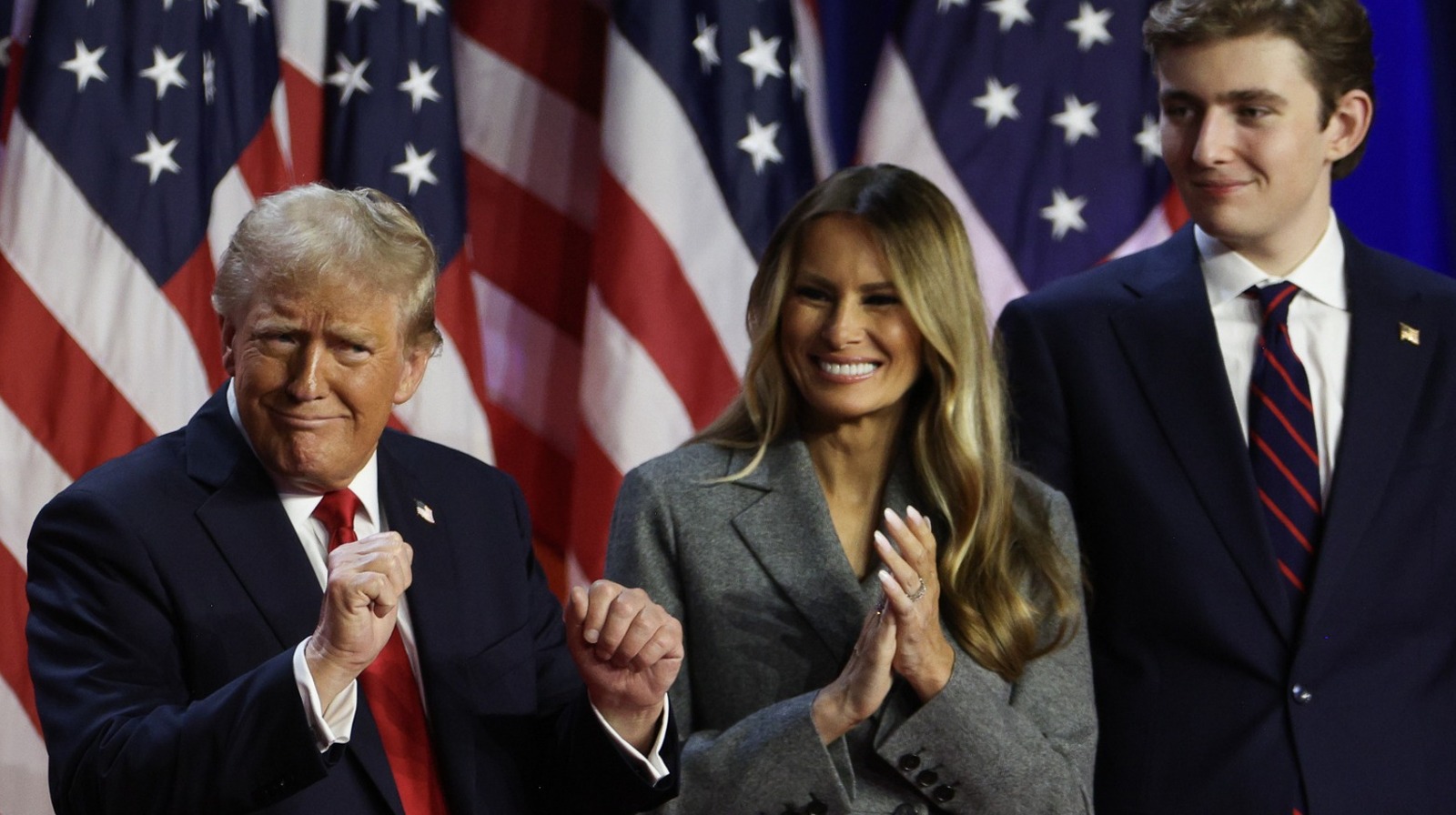Donald Trump has nominated Brendan Carr to head the Federal Communications Commission. Carr is a lawyer and veteran of the commission. He’s been in public life since 2012 and has been a commissioner since 2017. He’s also the author of the FCC section of the much-maligned Project 2025.
According to his work on Project 2025, Carr would use the power of the FCC to encourage Congress to rewrite Section 230, investigate and regulate Big Tech, and push Chinese tech businesses out of the U.S. “Commissioner Carr is a warrior for Free Speech, and has fought against the regulatory Lawfare that has stifled AMerica’s freedoms, and held back our Economy. He will end the regulatory onslaught that has been crippling America’s Job Creators and Innovators, and ensure that the FCC delivers for rural America,” Trump said in a statement about the pick.
Unlike other Trump picks, such as Tulsi Gabbard for Director of National Intelligence and Pete Hegseth for Secretary of Defense, Carr knows what he’s doing. He first came to the FCC in 2012 as a lawyer working for then-commissioner Ajit Pai. He briefly served as the Commission’s general counsel in 2017 before Trump appointed him as a member.
Appointing Carr feels like rewarding a loyal soldier. He’s been all over cable news and the internet defending Trump, boosting Elon Musk, and saying the Biden administration wielded the power of the FCC to target his political enemies.
During the campaign, Trump repeatedly called on the FCC to strip the broadcasting licenses of TV networks that did things he didn’t like. According to Trump, NBC violated the “equal time” rule when it let Kamala Harris make an appearance on SNL, ABC should lose its license because of how it handled the presidential debate, and CBS should lose its license after it aired multiple edits of Harris answering the same question on 60 Minutes. It’s a threat he makes a lot.
Carr has backed Trump on this issue. “This is a clear and blatant effort to evade the FCC’s Equal Time rule,” he said in a post on X about Harris’ SNL appearance. “The purpose of the rule is to avoid exactly this type of biased and partisan conduct—a licensed broadcaster using the public airwaves to exert its influence for one candidate on the eve of an election.”
He repeated this line of thinking in several cable news appearances and always backed the President. “We need to keep every single remedy on the table. One of the remedies the FCC has, ultimately, would be license revocation, if we find that it’s egregious. And we’ll see what they have to say about this. But it needs to deter this kind of conduct,” he said during a Fox News appearance.
Later Carr appeared as a witness at a House Oversight Committee hearing and Rep. Ro Khanna (D-CA) pressed him on the issue. Khana wanted a simple yes or no answer. “I just want to know simply, do you think, based on the ABC debate in your role as a former FCC commissioner, and do you think that that is grounds for revoking the license for ABC?”
Carr equivocated. “When President Biden stood at the White House podium and said ‘Elon Musk is worth being looked at’ and all of a sudden, the FCC abruptly reverses a 2020 decision to get him $885 million to bring broadband to 645,000 people, I think that’s concerning,” he said.
“When democrats in Congress write letters to cable companies asking them to drop Fox News ‘cuz of the decisions, I think that’s concerning,” he added. “So I think you’ve seen from my record a consistent pattern of always basing my decisions at the FCC based on the law, the facts, and the First Amendment. That’s what I’ve done. That’s what I’ll always do.”
The overture to Musk is another Carr constant. As part of a push to expand broadband networks to rural areas in America, Musk’s SpaceX was initially tapped to help get people online using Starlink. The contract was worth $885 million in government subsidies. The FCC rescinded the contract in 2022 and said that SpaceX couldn’t meet its standards. Carr has repeatedly said this was part of a Biden administration political attack on Musk.
According to Project 2025, Carr wants rural broadband and he wants Big Tech to help pay for it. The $9 billion Universal Service Fund does a lot of stuff to help build up America’s communications infrastructure. “The FCC obtains this funding through a line-item charge that carriers add to consumers’ monthly bills for traditional telecommunications service,” Carr explained in Project 2025. “While Big Tech derives tremendous value from the federal government’s universal service investments—using those federally supported networks
to deliver their products and realize significant profits—these large corporations have avoided paying a fair share into the program.”
Carr also wants to rework pieces of Section 230 to help reign in the power of Big Tech. Broadly, Section 230 is a law that gives internet platforms legal immunity from content posted by third parties on their site. Carr doesn’t want the FCC to eliminate Section 230, but he does want to reign it in.
Quoting Supreme Court Justice Clarence Thomas, Carr says that courts have given Section 230 too much power. “At the outset, the FCC can clarify that Section 230(c)(1) does not apply broadly to every decision that a platform makes,” Carr wrote. “Rather, its protections apply only when a platform does not remove information provided by someone else.”
Carr is big on the FCC making sure that Section 230 protections extend to users as well. “The FCC should clarify that the more limited Section 230(c)(2) protections apply to any covered platform’s decision to restrict access to material provided by someone else,” he wrote.
Carr also called for more transparency from Big Tech, in general. “After Google manipulates search results, a small business can see its web traffic drop precipitously overnight for no apparent reason, potentially flipping its outlook from black to red,” he said. “On Facebook, social media posts are left up or taken down, accounts suspended or permanently banned, without any apparent consistency. Out of the blue, YouTube can demonetize individuals who have risked their capital and invested their labor to build online businesses.”
Carr noted that broadband providers have to give the FCC detailed disclosures when they do things that shape internet traffic. “The FCC could take a similar approach to Big Tech, and it should look to Section 230 and the Consolidated Reporting Act as potential sources of authority,” he said. “Within this framework, Big Tech should be required to offer a transparent appeals process that allows for the challenging of pretextual takedowns or other actions that violate clear rules of the road.”
And, of course, Carr wants to ban TikTok and expand the Cover List—a list of communications equipment and services that the FCC believes pose a national security risk. “A new Administration should ban [TikTok] on national security grounds,” he wrote in Project 2025.
Carr is an old hand at dealing with Trump. He’s been auditioning for the role of FCC Chair since 2017. The position does require Senate confirmation, but Carr is much less vile and politically poisonous than many of Trump’s other picks. He’s likely to get the position and he’s likely to run the FCC in the way he outlined in Project 2025.




)



/cdn.vox-cdn.com/uploads/chorus_asset/file/25290355/STK048_XBOX_A.jpg)










 English (US) ·
English (US) ·